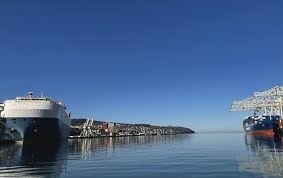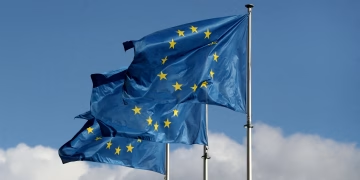Tbilisi, Georgia — Georgia’s Foreign Minister has announced that the country is intensifying its diplomatic engagement with European nations and capitals to strengthen political, economic, and security ties. The minister emphasized that Georgia seeks closer integration with the European Union and enhanced collaboration on regional stability, trade, and investment.
Strengthening European Ties
Georgia has historically maintained strong relationships with European countries, emphasizing shared democratic values, human rights, and economic cooperation. The Foreign Minister highlighted that ongoing dialogue is crucial for advancing these objectives, especially amid regional and global challenges.
“The European Union remains a key partner for Georgia,” the minister said in a press briefing. “We are working to deepen our relationships with member states and align our policies with European standards.”
Officials are conducting high-level meetings with diplomats, policymakers, and trade representatives from capitals across Europe. The goal is to increase bilateral cooperation and ensure Georgia’s voice is heard in continental discussions on security, economic development, and regional peace.
Key Areas of Engagement
The Foreign Minister outlined several focus areas for intensified dialogue with Europe:
- EU Integration: Georgia continues to pursue EU membership aspirations. Discussions with European officials focus on implementing reforms, strengthening democratic institutions, and ensuring compliance with EU norms.
- Trade and Investment: European markets remain critical for Georgian exports, including wine, mineral water, and agricultural products. The government is negotiating trade agreements, investment incentives, and support for small and medium-sized enterprises.
- Security and Regional Stability: Georgia is actively participating in regional security initiatives. Engagements with NATO and European security bodies aim to enhance border security, counter hybrid threats, and promote peace in the Caucasus region.
- Energy Cooperation: Georgia’s energy sector, including hydroelectric power and renewable energy, is a key point of interest. European partnerships aim to develop infrastructure, diversify energy sources, and support green energy initiatives.
- Cultural and Educational Exchange: Strengthening people-to-people contacts remains a priority. Programs supporting student exchange, academic research, and cultural collaboration are being expanded to enhance mutual understanding.
Recent Diplomatic Visits
In recent months, Georgian officials have visited several European capitals, including Berlin, Paris, Brussels, and Rome. These visits included meetings with foreign ministers, ambassadors, and EU representatives to discuss shared priorities.
During a meeting in Brussels, the Georgian Foreign Minister highlighted the country’s commitment to reforms in governance, transparency, and rule of law. EU diplomats acknowledged progress while outlining areas for continued improvement, emphasizing that alignment with European standards remains essential for deeper integration.
In Paris, discussions focused on economic cooperation and cultural exchanges. French officials expressed interest in expanding trade partnerships, investing in infrastructure projects, and supporting educational initiatives that link Georgian and European institutions.
Enhancing EU Integration Prospects
Georgia’s pursuit of EU membership requires substantial reforms in legal frameworks, anti-corruption measures, and judicial independence. The Foreign Minister stressed that dialogue with European capitals helps identify gaps and accelerate implementation of necessary reforms.
“Integration is not only a political goal but a practical commitment,” the minister said. “We are working closely with European partners to ensure that our institutions, laws, and governance structures meet the highest standards.”
European officials have consistently encouraged Georgia to maintain a reform trajectory, emphasizing that the country’s strategic location and democratic aspirations make it a key partner in the region.
Trade and Economic Cooperation
Trade with European countries is a cornerstone of Georgia’s economic strategy. EU nations are among the largest importers of Georgian wine, mineral water, fruits, and other goods. Intensifying dialogue focuses on removing barriers, facilitating market access, and expanding investment in Georgian industries.
Negotiations also cover infrastructure development, including transport corridors linking Georgia to European markets. Improved logistics and trade routes are expected to enhance competitiveness and attract foreign direct investment.
Furthermore, Georgia is exploring joint ventures in technology, renewable energy, and tourism, seeking to diversify the economy and create jobs for its population. European financial institutions have expressed willingness to support development projects that align with sustainability and regional growth objectives.
Security and Regional Stability
Security remains a top priority in Georgia’s foreign policy. Dialogue with European capitals addresses border protection, cybersecurity, and counterterrorism measures. Georgia is working with European partners to strengthen resilience against hybrid threats, including disinformation campaigns and cyberattacks.
The country also contributes to regional stability through participation in multilateral forums and peace initiatives in the Caucasus. European diplomats have highlighted Georgia’s strategic role as a bridge between Europe and the wider South Caucasus region.
Military cooperation and training exercises with European allies are being expanded to enhance defense capabilities, particularly in areas such as peacekeeping, disaster response, and maritime security.
Cultural and Educational Partnerships
Strengthening people-to-people ties complements Georgia’s political and economic diplomacy. The Foreign Minister emphasized initiatives in education, culture, and tourism to foster long-term relationships with Europe.
Student exchange programs are being expanded, allowing Georgian students to study at European universities and gain exposure to international academic standards. Collaborative research projects in science, technology, and social sciences are also being encouraged.
Cultural programs, including music, art, and literature exchanges, aim to showcase Georgian heritage while promoting cross-cultural understanding. These initiatives support broader diplomatic goals by building trust and shared values between Georgia and European nations.
Challenges and Opportunities
While progress has been made, Georgia faces challenges in meeting European expectations. Reforms in governance, anti-corruption measures, and judicial independence remain ongoing priorities. The Foreign Minister acknowledged that some issues require sustained effort and political consensus domestically.
However, intensified dialogue provides opportunities for guidance, mentorship, and support from experienced European partners. By engaging directly with capitals, Georgia can better navigate complex issues, secure technical assistance, and demonstrate commitment to international standards.
Economic diversification, infrastructure development, and enhanced trade agreements are also expected to provide tangible benefits to the Georgian population. Stronger ties with Europe can help attract investment, create jobs, and boost overall economic growth.
Looking Ahead
The Foreign Minister indicated that Georgia will continue high-level visits and regular consultations with European countries. Upcoming initiatives include participation in EU summits, bilateral trade missions, and joint security exercises.
“Our dialogue with Europe is more important than ever,” the minister said. “We aim to strengthen every aspect of our cooperation — political, economic, cultural, and security — to secure a prosperous and stable future for our country.”
Officials noted that successful engagement with Europe requires continuous reform, transparency, and proactive diplomacy. Georgia’s leadership is committed to maintaining momentum and ensuring that relationships with European nations continue to grow stronger.
Conclusion
Georgia is intensifying dialogue with European countries to solidify partnerships in politics, trade, security, and culture. The Foreign Minister emphasized the importance of high-level engagement, reform implementation, and proactive diplomacy.
By strengthening ties with EU member states and regional capitals, Georgia hopes to advance its European integration aspirations, attract investment, and enhance regional stability. Dialogue remains the key tool for navigating challenges, building trust, and creating opportunities for sustainable development.
The coming months will be critical as Georgia continues to engage European partners, demonstrating its commitment to shared values, democratic principles, and a prosperous future.






